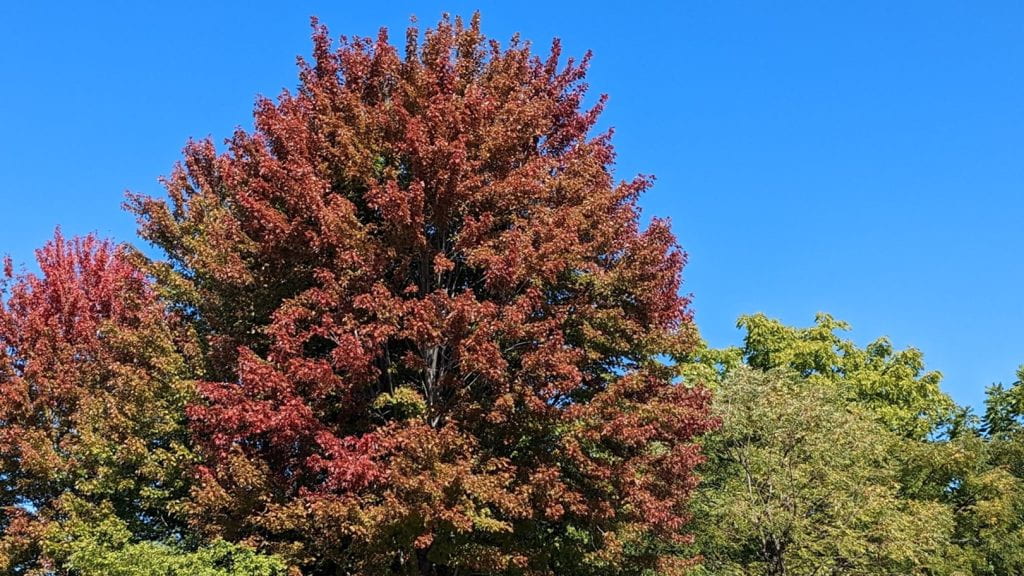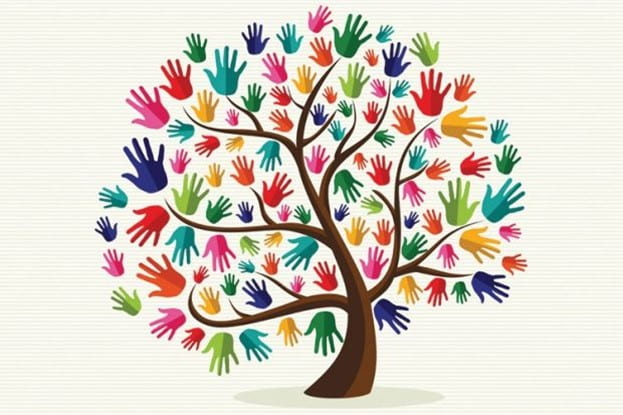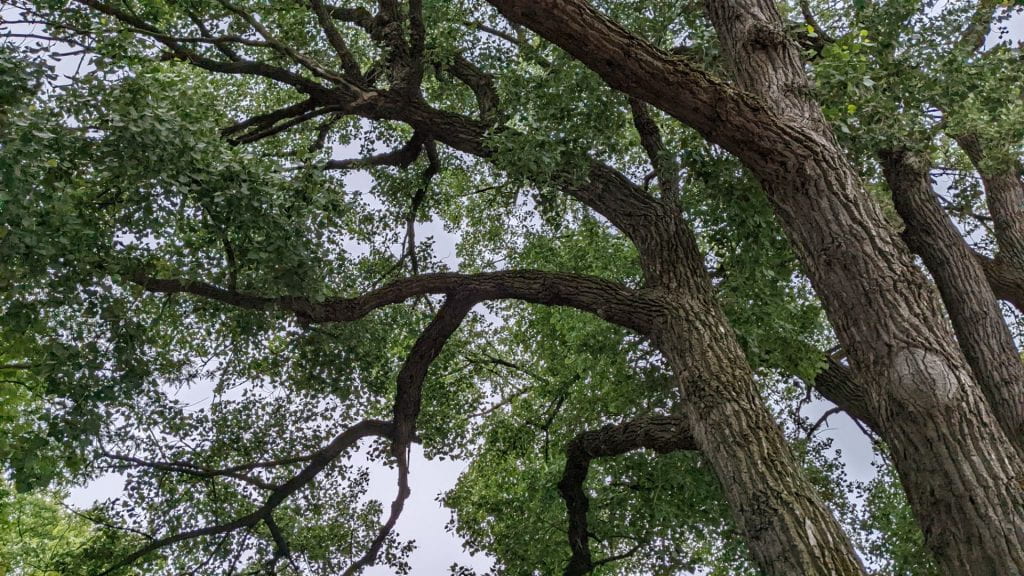“May you be forever a beautiful tree of life bringing forth fruits of love.”[1]
This is going to be a post about trees, with just a bit of science and fungi. But trust me, it’s not simply because it’s autumn now and the leaves are changing. It’s all about our Vincentian mission in the end.
Trees have long been a powerful symbol and have captured our imaginations in art, religion, popular culture, and myth. I’m sure most of us have a treasured, meaningful memory that features a tree. Personally, I spent half my childhood in the summer and fall scrambling up, down, and around treetops. After I didn’t have to rake them, I came to enjoy the slow process of the leaves as they seemed to warm up with vibrant colors until finally falling. Every year now I wish for a long fall.
There’s the old phrase: never meet your heroes. What’s wonderful is that trees never disappoint. Turns out, the more we learn about our ancient arboreal friends, the more they have to teach us. There’s a reason that wisdom is associated with trees. We all know that trees literally help all of life breathe. They help moderate the climate and detoxify our global ecosystem, turning carbon dioxide into oxygen. It’s estimated that one large tree provides enough oxygen for up to four people! Without them, we would not be here. But did you know that trees talk with one another? Not just metaphorically, or poetically, like in the way their leaves rustle through the wind, but in a very organic, physical way? Did you also know that, far from the myth of trees competing for either sun (up in the canopies) or for water (deep in their root structure), that forests of trees live in a kind of collective harmony, looking out for one another?
The work of Suzanne Simard, a Professor of Forest Ecology at the University of British Columbia, has been revolutionizing the way that we look at trees and forests. Professor Simard has been studying plant intelligence and networked communications since 1997. Her ground-breaking scientific work, previously scorned, is now leading the field’s understanding of forest ecology, and has coined the term “the wood-wide web.” It turns out, trees don’t—and never were meant to—stand alone. Beneath our feet is a sprawling, busy, dynamic network of roots and fungi that form what are called mycorrhizal networks. Mycelium are tiny threads of a fungal network that wrap into and around tree roots, linking them into a vast community. Through this network of fungus and roots, trees are able to send not only water and nutrients to each other, but also signals warning about disease, drought, or insects.
You can listen to a TED Talk from Professor Simard herself here, and learn directly from her much better than I could hope to explain.[2] The big takeaway for me though, as Professor Simard summarizes so eloquently in her book Finding the Mother Tree: Discovering the Wisdom of the Forest, is this: “Plants are attuned to one another’s strengths and weaknesses, elegantly giving and taking to attain exquisite balance. There is grace in complexity, in actions cohering, in sum totals.”[3]
How beautifully rich and awe inspiring is that? Beneath our feet, tree roots are connected via a fungal network and constantly communicating, a buzzing exchange of signals. Trees are looking out for one another, and for the health of the whole forest. They do not hoard water, nutrients, and minerals, but freely share them with whatever sapling or mighty oak needs them the most. Scientifically, trees live in community with one another.
Now, what does this have to do with our Vincentian community and mission? Everything. The image and metaphor of the tree has long been associated with our Vincentian family. Just look at DePaul’s own symbol: the Tree of Wisdom. We often talk about our Vincentian roots and origins, and the many branches that have grown from that same trunk. In his letter for this year’s Feast Day, Father Tomaž Mavrič, C.M., President of the Executive Committee of the Vincentian Family, noted the tree’s long symbolic history with the Vincentians.[4]
Our new scientific understanding of mycorrhizal networks only further enriches the metaphor. We do not stand alone, either as individuals, or as departments, colleges, universities, or any other group. We thrive when we do not hoard this or that or get stuck in our own silos, but freely collaborate in community, whether it is in the exchange of ideas, or in compassionate care. Let’s learn from the trees and, as Vincent said, bring “forth fruits of love.”
Note: A big thank you to Kiley Chernicky, a Graduate Student from our own Biology MS Program here at DePaul, for alerting me to the work of Professor Suzanne Simard!
Reflection Questions:
- What’s your favorite memory of a tree?
- How might you deepen your collaboration with another department or area of the university to the benefit of all?
- What’s one “outside-the-box” department you aren’t already connected with, that you think might bear fruitful collaboration? Unlikely, creative pairings can often produce unexpected, wonderful benefits.
Reflection by: Alex Perry, Program Manager, Division of Mission and Ministry
[1] Letter 27, “To Saint Louise,” [July 30, 1628], CCD, 1:46. Available at: https://via.library.depaul.edu/vincentian_ebooks/25/.
[2] TED Talk, Suzanne Simard found at https://www.npr.org/2017/01/13/509350471/how-do-trees-collaborate
[3] Simard, Suzanne; Finding the Mother Tree: Discovering the Wisdom of the Forest. (Toronto: Penguin Canada, 2022).
[4] Tomaž Mavrič, C.M., “Letter from Fr. Tomaž Mavrič, C.M., on the Occasion of the Feast of St. Vincent de Paul 2022,” Famvin blog, September 19, 2022, Letter from Fr. Tomaž Mavrič, C.M., on the Occasion of the Feast of St. Vincent de Paul.
Vincentian Heritage Tour
We are now accepting applications for the August 2023 Vincentian Heritage Tour. Join your fellow colleagues and walk in Vincent’s footsteps around Paris and France. Learn more about our Vincentian roots and become inspired to bring those experiences and lessons back with you to DePaul.
Learn more here: August 2023 Vincentian Heritage Tour



